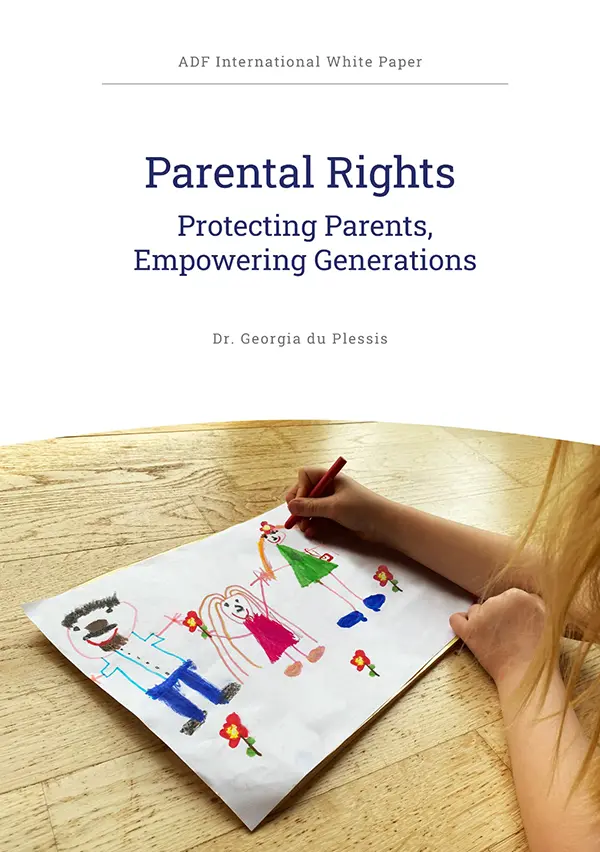White Paper
Parental Rights
Dr. Georgia du Plessis
International human rights law recognises parents as their children’s primary caretakers and authorities. Yet, at a time of state-sanctioned ideologies, the natural rights of parents are being denied. The state is increasingly seen as the child’s primary caretaker, which violates the international human rights of parents. Parents’ ability to nourish their children’s spiritual, psychological and physical integrity is threatened.
As a response to such increasing threats to the natural rights of parents, this white paper sets out the legal scope and depth of parental rights in international human rights law. It starts by setting out the legal principles and basic norms that establish the framework of parental rights. The rights and duties of parents as primary educators of their children are described and protected. It is shown that the state does not have a monopoly over children’s education, that parents have a right to raise their children in line with their religion or belief and that the child’s right to freedom of religion or belief is not a threat to parental rights. In line with this, the ‘best interest of the child’ is binding upon states, not parents. Parents are presumed to act in the best interest of the child. Finally, parental rights as protected in international human rights law are applied and investigated in light of modern-day practical challenges, such as radical ‘comprehensive sexuality education’ and the ‘gender transitioning’ of minors.



